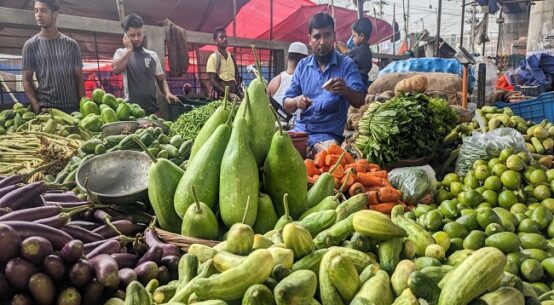Bangladesh should not bear the burden of more than 1 million Rohingya refugees alone while U.N. agencies are facing challenges to feed them, a United Nations official said Monday.
Olivier De Schutter, a U.N. special rapporteur on extreme poverty and human rights, made the statement at the end of a 12-day trip to Bangladesh, where he visited camps sheltering the refugees from Myanmar. He said the international response to meet the funds needed to support the refugees is “grossly insufficient.”
About $876 million is needed to support the community for a year, but only 17% of that has been pledged to date, he said, calling it “scandalous” at a news conference in Bangladesh’s capital, Dhaka.
“Bangladesh should not be left to shoulder the burden of the presence of the refugees on its own. These (U.N.) agencies should be much better supported in their work,” De Schutter said.
He said the World Food Program was forced in May to reduce the value of the monthly food vouchers it gives to each refugee from $12 to $10. It will be reduced further to $8 on June 1, he said.
“In a context in which food inflation this year was about 8%, that means that in the camps, children are undernourished,” De Schutter said. “The rates of malnutrition will increase. The rates of stunting will increase. The development of the child in that context will be endangered.”
Bangladesh has sheltered more than 1 million refugees as the Muslim Rohingya face widespread discrimination in the Buddhist-majority Myanmar, where most are denied citizenship and other rights.
More than 700,000 fled to Bangladesh starting in late August 2017, when the Myanmar military launched a “clearance operation” against them following attacks by a rebel group. The safety situation in Myanmar has worsened following the military takeover two years ago.
Bangladesh is currently working with China to start repatriation of the Rohingya to Myanmar as a pilot case. The U.N. said earlier that they were aware of such a move but were not part of it.
Prime Minister Sheikh Hasina said she would not force any refugees to move to Myanmar.

